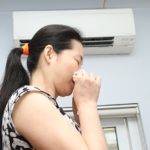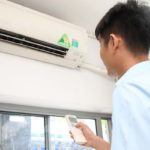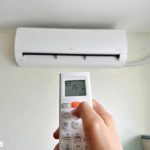There are mixed opinions about using air conditioning for children during the summer, especially when temperatures soar to almost 40 degrees Celsius, a temperature that can be uncomfortable even for adults. While it is true that children tend to be more active and prone to sweating, is it really necessary to turn on the AC while they sleep? Some parents worry that the harsh temperatures and their children’s weak immune systems can lead to health issues such as runny noses, sneezing, and, in more severe cases, fever, colds, or even Bell’s palsy.
To address the concerns of whether it is advisable to use air conditioning for children in the summer and how to prevent them from catching a cold when using it, pediatricians from the Pediatric Department have offered some insightful recommendations.
Should Air Conditioning Be Used for Children During Summer?
According to pediatric experts, using air conditioning for young children during the summer is necessary, but it should be done following safety and rationality to protect the children’s health. Many parents are concerned that their children might catch a cold, so they refuse to turn on the AC. However, letting children stay sweaty in hot and humid weather is not a good option either.
During hot weather, children are prone to skin conditions like prickly heat, infected eczema, allergies, asthma, and other ailments. In severe cases, children may suffer from heatstroke, which can even be life-threatening.
The American Academy of Pediatrics recommends that, to ensure children’s health and comfort during the summer, parents should use air conditioning. However, it is essential to use it rationally, adjusting the temperature appropriately and paying attention to the humidity in the room.
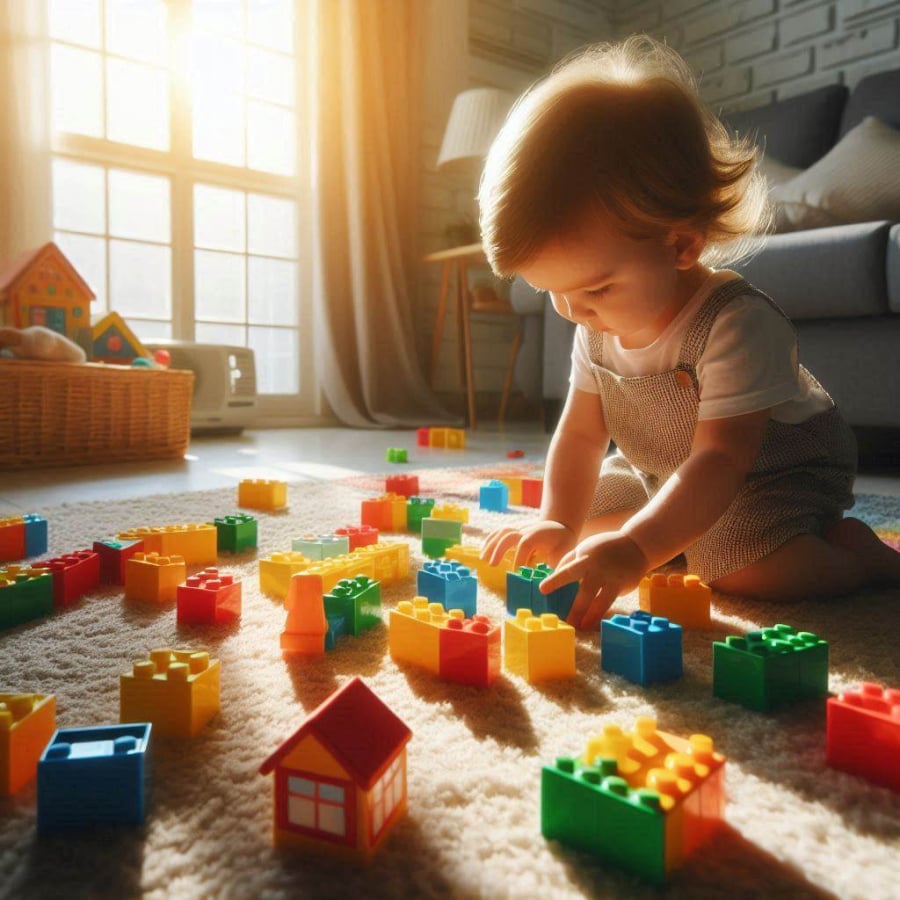
The American Academy of Pediatrics recommends using air conditioning to ensure children’s comfort and health in the summer.
What Temperature Should the Air Conditioner Be Set to for Children in Summer?
A common question among parents is, “What is the appropriate air conditioner temperature for children?” Most parents tend to set the temperature at 26 degrees Celsius, believing it to be the ideal temperature.
However, according to a pediatrician, while 26 degrees Celsius is suitable during the day, it is recommended to adjust the temperature to 28 degrees Celsius at night, especially when the children are asleep. Even without a blanket, children are less likely to catch a cold or fall ill at this temperature.
If the temperature is maintained at 26 degrees Celsius throughout the night, children may start feeling cold after 2 a.m.
Although this guideline generally works for many families, there are special considerations to take into account, such as the size of the room, the efficiency of the air conditioner, and each child’s individual temperature perception.
How to Properly Use Air Conditioning in Summer
One of the main reasons why many families hesitate to use air conditioning for their children during the summer is the fear of their children catching a cold.
According to pediatricians, the primary reason children fall ill during the summer is often due to neglecting four essential aspects. This implies that, with rational use of air conditioning, children are less likely to get sick.
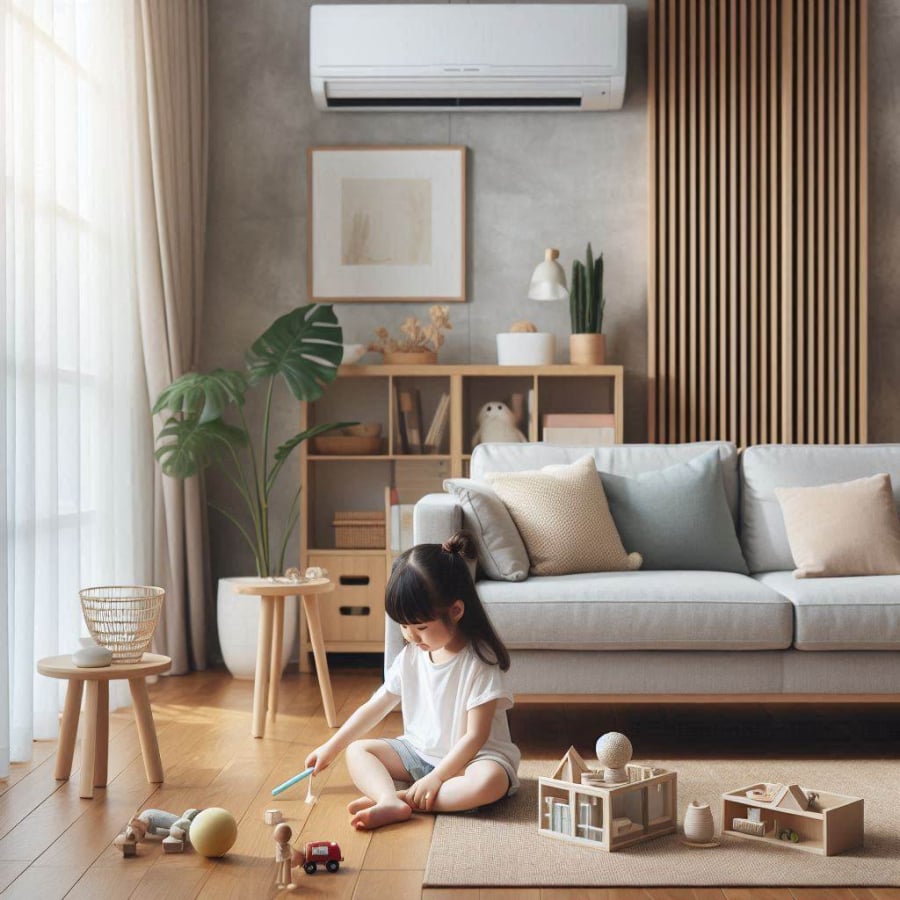
Rational use of air conditioning can help prevent children from getting sick in the summer.
Adjust the Temperature and Humidity of the Air Conditioner
Temperature: At night, the temperature of the air conditioner in the child’s room should be set to 28 degrees Celsius. If the child sweats a lot or feels hot, adjust the temperature according to their physical condition. Ensure that the airflow from the air conditioner does not blow directly onto the child.
Humidity: After setting the temperature and airflow direction, don’t forget to adjust the humidity (usually at 50%). Children’s skin is delicate and prone to dryness. Improper humidity can lead to dry and itchy skin.
Clean the Air Conditioner Before Use
Before each summer, remove, clean, and sun-dry the air conditioner’s filter. It is not advisable to turn on the air conditioner without cleaning it first, as accumulated dust and bacteria can cause skin irritation or other health issues.
In addition to cleaning the filter, the inside of the air conditioner should also be disinfected and cleaned using specialized cleaning agents or with the help of a professional. The filter should be cleaned every two weeks, and the inside of the air conditioner should be cleaned annually.
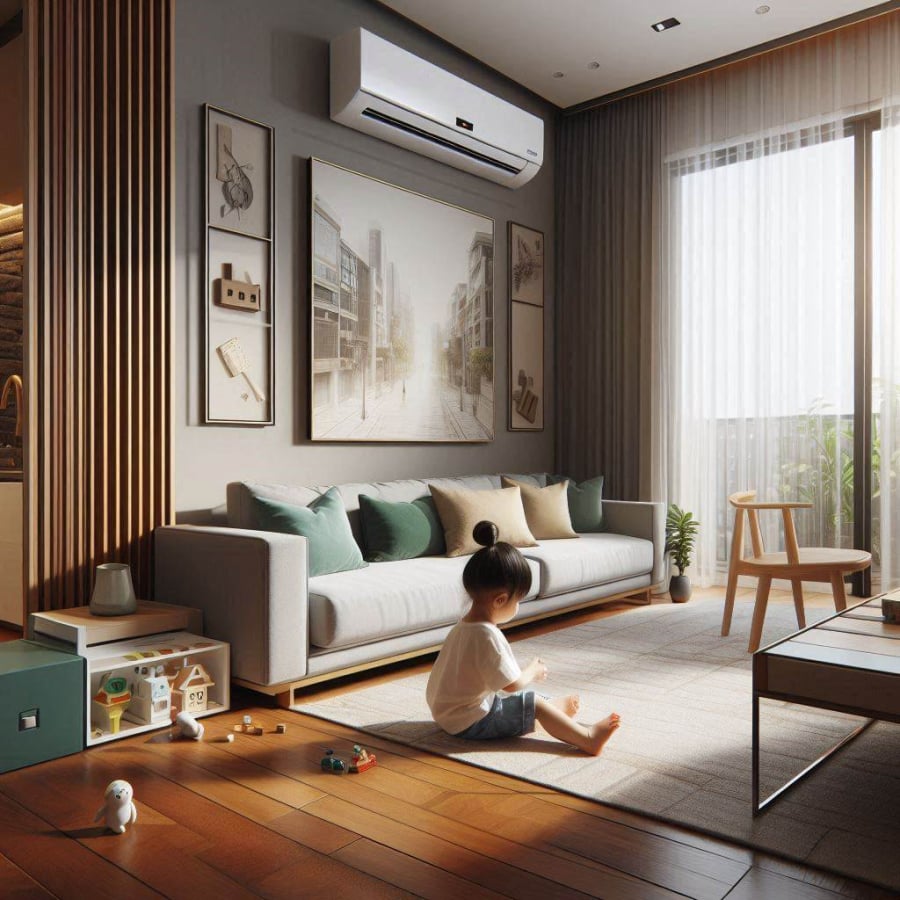
It is important to clean the air conditioner’s filter before using it for the summer.
Wait for Children to Stop Sweating Before Turning on the Air Conditioner
Children tend to be very active and can sweat profusely after playing outdoors. When they come inside, refrain from turning on the air conditioner immediately. Allow them to stop sweating, change into clean and comfortable clothes, and wait until their body temperature returns to normal before turning on the AC.
Turning on the air conditioner while they are still sweating can make them prone to catching a cold. Similarly, about 20 minutes before going outdoors, turn off the air conditioner to allow their bodies to gradually adjust to the outside temperature.
Maintain Ventilation and Ensure Proper Hydration
Closing the doors and windows and using the air conditioner for extended periods can cause the indoor air to become stagnant and polluted. Therefore, after every 3-4 hours of using the air conditioner, open the doors and windows for at least 20 minutes to ventilate the room.
Suggestion: Take your children outdoors in the morning or evening to let them breathe fresh air.
If they stay in an air-conditioned room for a long time, remind them to drink plenty of water to avoid dry mouth.
Conclusion
During the hot summer months, instead of letting children sweat and feel uncomfortable, parents should turn on the air conditioner and use it correctly to ensure their children’s health and well-being.
Eliminating Unpleasant Air Conditioner Odors: 3 Simple Steps
Is the noxious odor from your new air conditioner impacting your indoor experience? Don’t worry – we can help! There are numerous easy ways to tackle this issue and get your air conditioner smelling great again. Learn about these simple solutions that will help restore your environment and ensure a pleasant air quality!


























